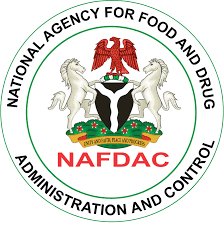By Nkechi Eze
The National Agency for Food and Drug Administration and Control (NAFDAC) has reaffirmed its unwavering commitment to enforce the total ban on the production and sale of alcoholic beverages in sachets and small-volume PET or glass bottles below 200ml by December 2025. The move follows a recent directive by the Senate of the Federal Republic of Nigeria and enjoys full backing from the Federal Ministry of Health and Social Welfare.
In a statement personally signed by the Director-General of NAFDAC, Professor Mojisola Christianah Adeyeye, the agency stated that the decisive step underscores its statutory mandate to safeguard public health and protect vulnerable groups, particularly children, adolescents, and young adults from the harmful effects of alcohol misuse.
According to NAFDAC, the proliferation of high-alcohol-content beverages in sachets and small containers has made them alarmingly accessible, affordable, and concealable, leading to their widespread abuse among minors, commercial drivers, and low-income earners. The agency noted that the trend has contributed significantly to public health and social problems, including domestic violence, road accidents, addiction, school dropouts, and other social vices.
Prof. Adeyeye described the enforcement as a critical public health measure that prioritizes the welfare of Nigerians over short-term commercial interests. “This ban is not punitive; it is protective. It is aimed at safeguarding the health and future of our children and youth. The decision is rooted in scientific evidence and public health considerations. We cannot continue to sacrifice the well-being of Nigerians for short-term economic gain. The health of a nation is its true wealth,” she stated.
The ban is a continuation of a phased policy that began in December 2018 when NAFDAC, in partnership with the Federal Ministry of Health and the Federal Competition and Consumer Protection Commission (FCCPC), signed a five-year Memorandum of Understanding (MoU) with the Association of Food, Beverage and Tobacco Employers (AFBTE) and the Distillers and Blenders Association of Nigeria (DIBAN). The agreement sought to gradually phase out sachet and small-volume alcohol packaging by January 31, 2024. However, the moratorium was extended to December 2025 to allow manufacturers to exhaust old stock and reconfigure production lines.
NAFDAC clarified that the current Senate resolution aligns with the spirit and letter of the 2018 agreement and with Nigeria’s international commitment to the World Health Organization (WHO) Global Strategy to Reduce the Harmful Use of Alcohol (WHA63.13, 2010), to which the country is a signatory.
The agency emphasized that the regulation targets only two categories of alcoholic beverages, spirit drinks packaged in sachets and those in PET or glass bottles below 200ml. It urged all manufacturers, distributors, and retailers to comply fully with the phase-out deadline, warning that no further extension would be granted beyond December 2025.
NAFDAC further assured that it will continue to collaborate with the Federal Ministry of Health and Social Welfare, the FCCPC, and the National Orientation Agency (NOA) to intensify nationwide sensitization campaigns on the health and social dangers of alcohol misuse.
Reiterating its mission, the agency reaffirmed that it remains resolute in ensuring that only safe, wholesome, and properly regulated products are available in the Nigerian market.
“Public health must take precedence over profit,” Prof. Adeyeye concluded. “This policy marks a firm step towards a healthier and more responsible society.”

















